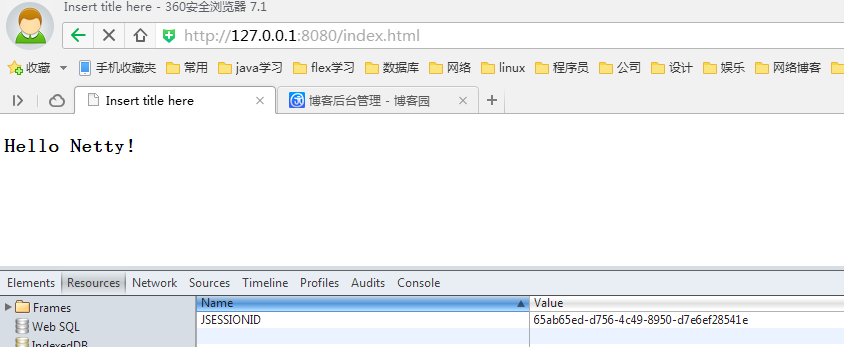1.HttpServer,Http服务启动类,用于初始化各种线程和通道
public class HttpServer { public void bind(int port) throws Exception { EventLoopGroup bossGroup = new NioEventLoopGroup(); EventLoopGroup workerGroup = new NioEventLoopGroup(); try { ServerBootstrap b = new ServerBootstrap(); b.group(bossGroup, workerGroup) .channel(NioServerSocketChannel.class) .option(ChannelOption.SO_BACKLOG, 1024) .childHandler(new HttpChannelInitService()).option(ChannelOption.SO_BACKLOG, 128) .childOption(ChannelOption.SO_KEEPALIVE, true); ChannelFuture f = b.bind(port).sync(); f.channel().closeFuture().sync(); } finally { bossGroup.shutdownGracefully(); workerGroup.shutdownGracefully(); } } public static void main(String[] args) throws Exception { int port = 8080; if (args != null && args.length > 0) { try { port = Integer.valueOf(args[0]); } catch (NumberFormatException e) { } } new HttpServer().bind(port); } }
2.HttpChannelInitService,通道初始化类
public class HttpChannelInitService extends ChannelInitializer<SocketChannel>{ @Override protected void initChannel(SocketChannel sc) throws Exception { sc.pipeline().addLast(new HttpResponseEncoder()); sc.pipeline().addLast(new HttpRequestDecoder()); sc.pipeline().addLast(new HttpChannelHandler()); } }
3.HttpChannelHandler,处理请求的HTTP信息
public class HttpChannelHandler extends ChannelInboundHandlerAdapter { private HttpRequest request = null; private FullHttpResponse response = null; @Override public void channelRead(ChannelHandlerContext ctx, Object msg) throws Exception { if (msg instanceof HttpRequest) { request = (HttpRequest) msg; String uri = request.getUri(); String res = ""; try { res = ReadUtils.readFile(uri.substring(1)); response = new DefaultFullHttpResponse(HttpVersion.HTTP_1_1,HttpResponseStatus.OK, Unpooled.wrappedBuffer(res.getBytes("UTF-8"))); setJsessionId(isHasJsessionId()); setHeaders(response); } catch (Exception e) {//处理出错,返回错误信息 res = "<html><body>Server Error</body></html>"; response = new DefaultFullHttpResponse(HttpVersion.HTTP_1_1,HttpResponseStatus.OK, Unpooled.wrappedBuffer(res.getBytes("UTF-8"))); setHeaders(response); } if(response!=null) ctx.write(response); } if (msg instanceof HttpContent) { HttpContent content = (HttpContent) msg; ByteBuf buf = content.content(); System.out.println(buf.toString(CharsetUtil.UTF_8)); buf.release(); } } /** * 设置HTTP返回头信息 */ private void setHeaders(FullHttpResponse response) { response.headers().set(HttpHeaders.Names.CONTENT_TYPE, "text/html"); response.headers().set(HttpHeaders.Names.CONTENT_LANGUAGE, response.content().readableBytes()); if (HttpHeaders.isKeepAlive(request)) { response.headers().set(HttpHeaders.Names.CONNECTION, Values.KEEP_ALIVE); } } /** * 设置JSESSIONID */ private void setJsessionId(boolean isHasJsessionId) { if(!isHasJsessionId){ CookieEncoder encoder = new CookieEncoder(true); encoder.addCookie(HttpSession.SESSIONID, HttpSessionManager.getSessionId()); String encodedCookie = encoder.encode(); response.headers().set(HttpHeaders.Names.SET_COOKIE, encodedCookie); } } /** * 从cookie中获取JSESSIONID信息 * 判断服务器是否有客户端的JSESSIONID * @author yangsong * @date 2015年3月26日 下午2:08:07 */ private boolean isHasJsessionId() { try { String cookieStr = request.headers().get("Cookie"); Set<Cookie> cookies = CookieDecoder.decode(cookieStr); Iterator<Cookie> it = cookies.iterator(); while(it.hasNext()){ Cookie cookie = it.next(); if(cookie.getName().equals(HttpSession.SESSIONID)){ if(HttpSessionManager.isHasJsessionId(cookie.getValue())){ return true; } System.out.println("JSESSIONID:"+cookie.getValue()); } } } catch (Exception e1) { e1.printStackTrace(); } return false; } @Override public void channelReadComplete(ChannelHandlerContext ctx) throws Exception { System.out.println("server channelReadComplete.."); ctx.flush();//刷新后才将数据发出到SocketChannel } @Override public void exceptionCaught(ChannelHandlerContext ctx, Throwable cause) throws Exception { System.out.println("server exceptionCaught.."); ctx.close(); } }
5.HttpSessionManager,Session管理类
/** * HttpSession管理器 */ public class HttpSessionManager { private static final HashMap<String,HttpSession> sessionMap = new HashMap<String, HttpSession>(); /** * 创建一个session并返回sessionId */ public static String getSessionId(){ synchronized (sessionMap) { HttpSession httpSession = new HttpSession(); sessionMap.put(httpSession.getSessionID(), httpSession); return httpSession.getSessionID(); } } /** * 判断服务器是否包含该客户端的session信息 */ public static boolean isHasJsessionId(String sessiondId){ synchronized (sessionMap) { return sessionMap.containsKey(sessiondId); } } }
6.页面信息与cookie
